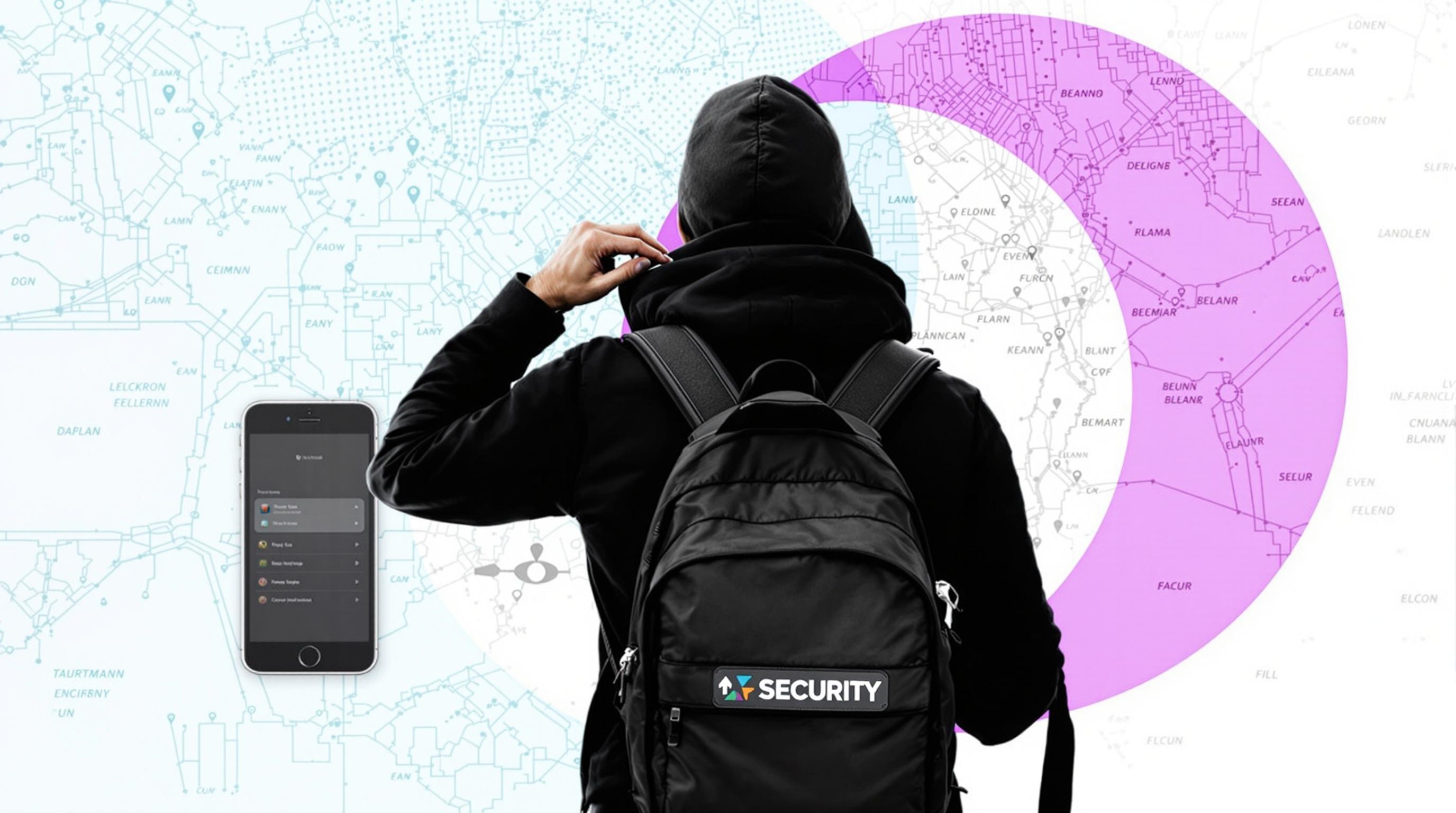Related Articles
- Uncharted Escapes: Navigating the Controversial Allure of Fringe Destinations and Their Untold Stories
- Uncharted Realms: The Surprising Intersection of Urban Legends and Adventure Travel in Offbeat Locations
- Curious Chronicles: Bizarre Transport Innovations Shaping Uncommon Explorations Across Unvisited Trails
- The Forgotten History of Eco-Adventuring: Learning from Indigenous Practices for Modern Exploration
- The Hidden Impact of Eco-Conscious Adventure Games on Environmental Education and Community Resilience
- Uncommon Routes: The Unexpected Appeal of Ghost Town Hikes in Eco-Friendly Exploration
12 Innovative Travel Safety Hacks from Tech-Savvy Nomads: Enhance Your Security with Smart Solutions for Modern Adventures
12 Innovative Travel Safety Hacks from Tech-Savvy Nomads: Enhance Your Security with Smart Solutions for Modern Adventures
12 Innovative Travel Safety Hacks from Tech-Savvy Nomads: Enhance Your Security with Smart Solutions for Modern Adventures
1. Use Encrypted Messaging Apps
In today's connected world, security while communicating is paramount. Tech-savvy travelers often turn to encrypted messaging apps such as Signal or WhatsApp for their end-to-end encryption features, which ensure that conversations remain private. Using these apps not only protects personal information but also allows travelers to coordinate plans with fellow nomads securely.
Moreover, these apps offer additional features like disappearing messages and secure file sharing, adding another layer of safety. By switching from traditional SMS to encrypted platforms, travelers mitigate the risk of their conversations being intercepted by unauthorized parties.
For those journeying in regions known for high surveillance or insecurity, implementing securely encrypted apps becomes an essential step toward safeguarding personal and sensitive information.
2. Smart Luggage for Trackability
Bringing the concept of baggage security into the tech age, smart luggage equipped with GPS tracking has become a must-have for frequent travelers. These innovative bags notify you of their location via a smartphone app, giving you peace of mind in case of loss or theft. With this technology, misplaced luggage can easily be traced back to your location.
Additionally, many smart luggage options offer features such as built-in chargers and tamper-proof locks for added security. This combination not only elevates convenience but also enhances overall safety during transit, as travelers can keep their belongings in check.
As luggage theft can be a significant concern in airports and transport hubs, investing in smart luggage can prove invaluable for both short trips and long-term adventures.
3. Virtual Private Network (VPN) Usage
Using public Wi-Fi networks can expose travelers to a plethora of security risks. To mitigate these dangers, tech-savvy nomads rely on Virtual Private Networks (VPNs) to encrypt their internet connection, ensuring that online activities remain secure. VPNs mask your IP address and create a private tunnel for data transmission, preventing hackers from intercepting sensitive information.
Travelers can choose from a variety of reliable VPN services, ensuring that their online banking, emails, and personal communications stay protected while using public hotspots. This type of protection is especially important for digital nomads who frequently rely on various forms of shared internet connections throughout their journeys.
Ultimately, incorporating a VPN into your travel toolkit is essential for preserving online privacy, especially in regions where data security standards may be lacking.
4. Secure Cloud Storage Solutions
As mobile devices become primary tools for communication and documentation, the risk of losing important files increases. Many tech-savvy travelers utilize secure cloud storage solutions like Google Drive or Dropbox to back up critical documents such as passports, itineraries, and medical records. This extra layer of security ensures that vital information is never lost.
In addition to backing up documents, cloud storage services often provide features that allow travelers to share access with trusted companions. In emergency situations, having quick access to documents stored in the cloud can expedite various processes, such as emergency contacts or accessing travel insurance.
Moreover, these platforms’ encryption features further protect data, making them a wise choice for anyone concerned about the potential risks of losing sensitive information while on the move.
5. Anti-Theft Backpack Designs
As technology continues to evolve, so does the design of travel gear. Anti-theft backpacks are gaining popularity among tech-savvy nomads; these bags are equipped with features such as lockable zippers, cut-resistant straps, and hidden compartments. These innovations deter pickpockets and secure electronic devices from unwanted access.
Many modern anti-theft backpacks also come with built-in USB charging ports, allowing travelers to recharge devices without exposing their valuables. This fusion of safety and functionality appeals to the mobile lifestyle that today’s travelers lead.
In crowded areas or local transport, investing in an anti-theft backpack can provide a significant sense of security, making it easier for nomads to truly enjoy their adventures.
6. Portable Security Alarms
For those who prioritize personal safety, portable security alarms are an invaluable addition to travel gear. These small devices can be clipped to bags, clothing, or hotel doors and emit loud noises when activated. This deterrent can alert others and draw attention in the case of an emergency, potentially scaring off an assailant.
Many modern designs for these alarms are compact and stylish, making them easy to carry while still being effective. They're particularly useful for travelers visiting unfamiliar destinations or for solo adventurers seeking an additional layer of safety.
With personal safety being a primary concern for many, incorporating a portable security alarm can offer peace of mind and a sense of security, especially in crowded or isolated areas.
7. Smart Home Devices for Remote Property Monitoring
For nomads who maintain homes while traveling, smart home devices can provide crucial remote monitoring capabilities. Smart security cameras, motion detectors, and doorbell cameras allow homeowners to monitor their property in real-time through smartphone applications. This connection provides reassurance while away, ensuring that homes remain protected.
Many of these devices have advanced features such as alert notifications, two-way audio, and cloud storage for recordings, enhancing the security profile of any home. This technology allows travelers to address emergencies quickly and stay connected with their living space, even from across the globe.
By enabling remote monitoring, these smart devices contribute to a more secure travel experience, allowing nomads to focus on their adventures without the constant worry of their property back home.
8. Biometric Security Options
As biometric technology continues to advance, travelers are increasingly opting for fingerprint or facial recognition-enabled devices. Laptops and smartphones equipped with biometric security offer a level of protection that passwords alone cannot provide, making unauthorized access significantly more difficult.
Biometric security is particularly useful for safeguarding sensitive information or personal data stored on devices, ensuring that only the owner can access essential files, photos, or communications. It also simplifies the login process, enabling quick and easy access without the need for memorizing complex passwords.
Incorporating biometric technology into travel plans enhances the security of digital data, thereby reducing the risk of identity theft and providing essential peace of mind while on the road.
9. Location Sharing Apps
In the age of digital connectivity, sharing your location with trusted friends and family has never been easier. Applications like Google Maps and Find My Friends allow travelers to share their real-time whereabouts with loved ones. This feature enhances safety by reassuring concerned contacts about your wellbeing during adventures.
In addition, some services offer SOS features that alert contacts and emergency personnel if a significant change in location or distress is detected. This kind of rapid response can be vital in emergencies, amplifying the safety net surrounding solo travelers or groups exploring unfamiliar territories.
Utilizing location-sharing apps can strengthen the safety net for globetrotters, cultivating a collective responsibility around personal safety amongst friends and family.
10. Digital Safety Courses and Workshops
As technology plays an ever-increasing role in travel, many tech-savvy nomads are choosing to enhance their skills through digital safety courses and workshops. These training sessions provide valuable knowledge on how to protect personal information, identify threats, and utilize tools effectively while traveling in the digital age.
Offering insights from cybersecurity experts and informative content, these workshops can enlighten participants on how to navigate potential risks associated with technology. Common topics often cover secure online behavior, setting up proper firewalls, and recognizing phishing attempts.
By empowering travelers through education, these courses help cultivate a culture of safety and awareness, ensuring that adventurers are well-equipped to handle the evolving challenges of modern travel.




